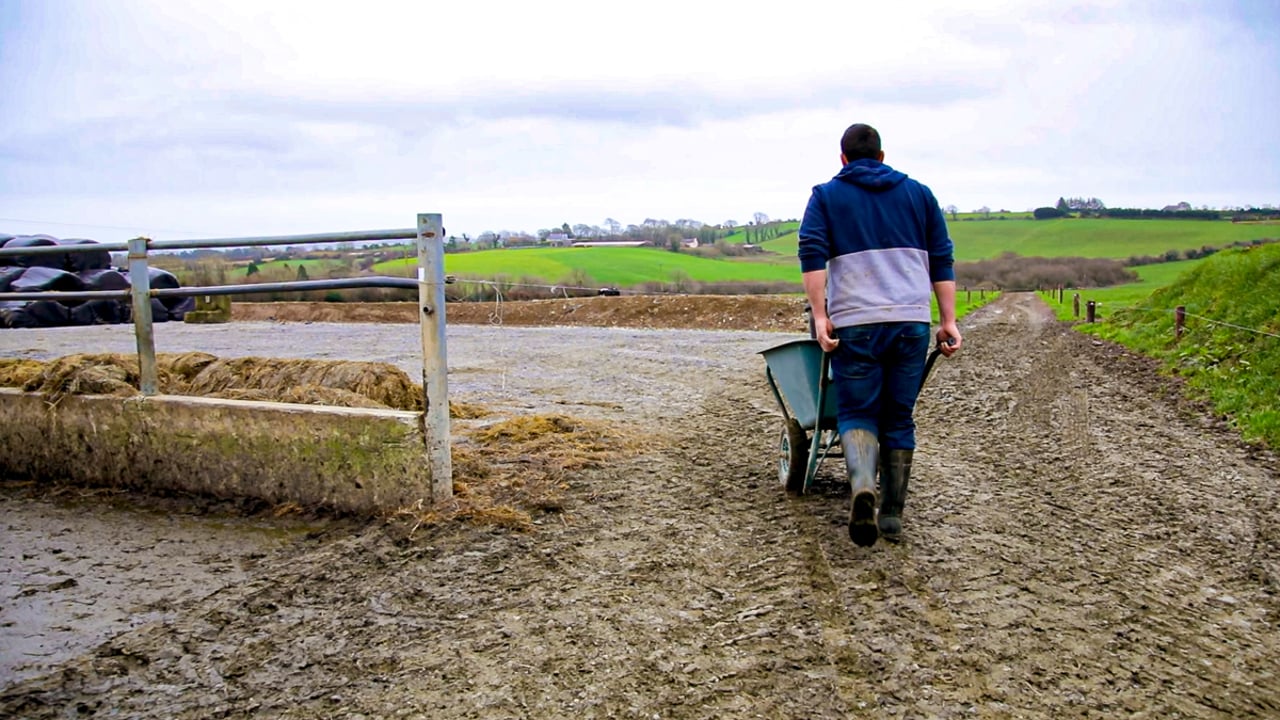How can farmers ensure they are compliant with schemes?
The Agriculture Appeals Office has offered advice to farmers to ensure they are compliant with the terms of certain farm schemes.
Established in 2002, the office provides an appeals service to farmers who are not satisfied with decisions of the Department of Agriculture, Food and the Marine (DAFM) concerning designated schemes operated by the department.
483 appeals were made by farmers in relation to farm schemes in 2024, down from 624 in the previous year, according to the office's annual report.
636 appeals were brought to a conclusion throughout the year, down from the 652 closed in 2023, but above the ten-year average of 628.
Of the 636 appeals closed in 2024, 43% were allowed, partially allowed or revised, 44% were disallowed and 13% were withdrawn, invalid or out of time.
As part of the annual report, the Agriculture Appeals Office published a series of recommendations for farmers to ensure scheme compliance.
The office said that it is important that applicants familiarise themselves fully with the terms, conditions and guidelines of schemes before submitting their claims.
"An appeals officer is required to adhere to the terms and conditions of a scheme and any relevant legislation in making a decision on an appeal.
Where farmers are uncertain, they should consider engaging a professional advisor or other competent person to assist them in understanding the scheme rules and requirements," the report said.
The office recommended that farmers familiarise themselves with the requirements of conditionality, which consists of Statutory Management Requirements (SMRs) and Good Agricultural and Environmental Condition (GAEC) in respect of the water, soil and biodiversity of ecosystems.
It added that all farmers must be compliant with the legal requirements of the nitrates regulations.
"Farmers should always be aware of storage requirements for their herd size and ensure that they meet the requirements in full. This is especially important where herd size is increasing," the report said.
Certain conditionality penalties can have "significant implications". For example, any breach of the 170Kg/ha nitrogen (N) limit for those in the Organic Farming Scheme will cause a 100% penalty on payments.
While certain conditionality breaches may result in an Agri-Climate Rural Environment Scheme (ACRES) action being deemed ineligible for payment.
The office reminded farmers that appeals must be made within three months of the date of notification of the department’s decision being appealed against.
The report also lists specific recommendations for farmers in relation to individual schemes as follows:
Complimentary Income Scheme Young Farmers (CISYF)
- A significant number of appeals are due to applications being rejected due to applicants failing to demonstrate financial and managerial control, in accordance with the CIS-YF terms and conditions;
- Farmers should be very clear that there is no transitional period, when moving from a joint bank account to a new bank account, where a young farmer is named.
Targeted Agricultural Modernisation Schemes (TAMS)
- An applicant should only submit a payment claim after the actual payment is made. Applicants should always be aware that claim inspections/validations may in addition to invoices request bank statements, cheque/ electronic payments etc. to ensure that the TAMS payment claim was only submitted after the item was owned possessed and was fully paid for;
- Applicants should also be aware post-dated cheques, after the date of a payment claim, are not considered eligible payment.
Organic Farming Scheme (OFS)
- The applicant is fully responsible for maintaining their organic licence and status, the Appeals Officer has no statutory role regards the awarding or withdrawal of an organic licence;
- OFS participants must remain aware that withdrawal of the organic licence by the department or by the organic certifying body, or allowing their organic licence to lapse, within the term of an OFS contract shall mean termination from the scheme and recoupment of all aid paid;
- The office said it has noted a perception that there is a derogation from the organic standards during the 2-year conversion period prior to full symbol organic status. Applicants should be aware that there is no derogation. The conversion period is an
- adjustment period for land/animals etc. and the costs associated with it are recognised in the OFS.
- The organics terms and conditions should make it clear that there is no derogation from organic standards during the conversion period.
Areas of Natural Constraints (ANC)
- Applicants should familiarise themselves with the stocking density requirements, even in the event of herd restrictions;
- All applicants should be aware of new livestock unit (LU) values in place from the start of 2023, livestock unit values have reduced for certain categories of animals.
- Sheep and goat farmers should be vigilant in returning their Sheep/Goat Census and ensure their flock registers are up to date;
- ANC applicants should ensure that they: make an application (take care not to untick
- the ‘tick box’), meet average annual stocking density and maintain 28 consecutive weeks stock retention period.
Basic Income Support for Sustainability (BISS) Scheme
- Farmers should take appropriate measures to ensure that any entitlements leased out by them are fully used in accordance with the scheme requirements;
- Farmers should always be aware of the entitlement related requirements and if unsure should seek advice and/or information.





